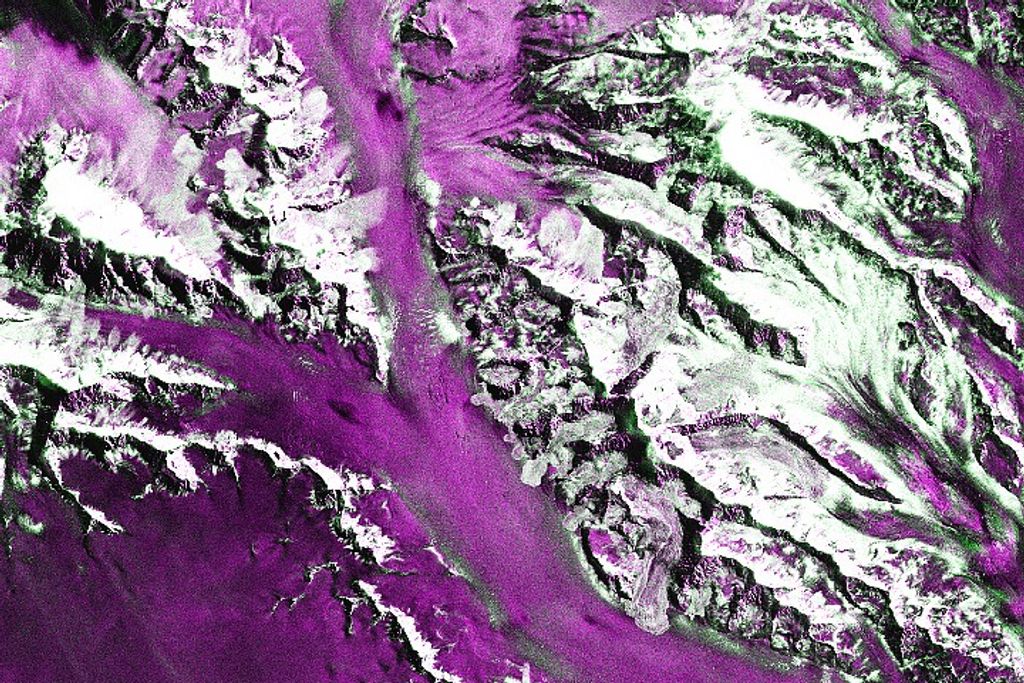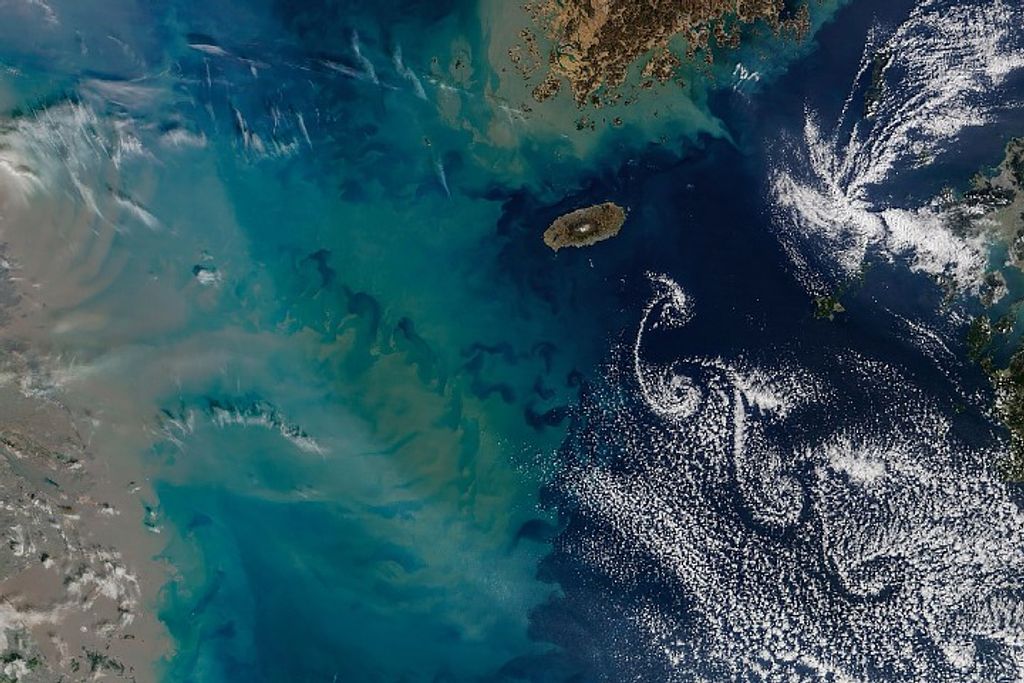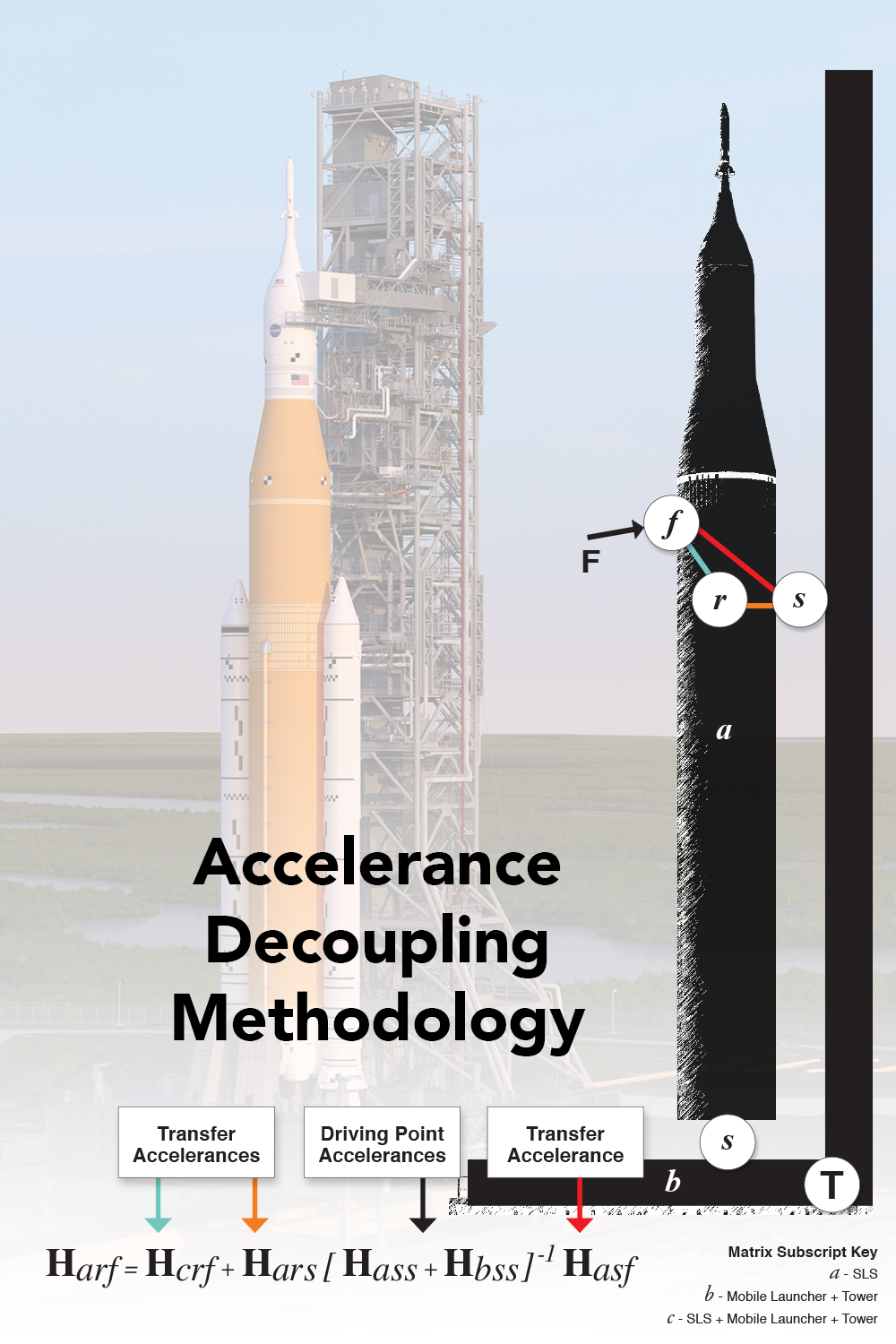Download PDF: Accelerance Decoupling for Modal Test
A new methodology for modal tests has been developed called Accelerance Decoupling (AD), which overcomes the problem that free-free modal data could not be directly obtained from the integrated vehicle while on the launch platform. This methodology is being applied to acquire the free-free modal data needed by the Space Launch System (SLS) vehicle for loads and flight controls, which cannot be directly obtained from the integrated SLS/mobile launcher (ML) test in the Vehicle Assembly Building. The ML represents an elastic boundary condition for the combined Multi-Purpose Crew Vehicle (MPCV)/SLS and it is non-traditional (neither fixed nor free-free) and very challenging for a modal test.
AD solves the problem by reversing the coupling process used in the receptance coupling method. In addition, AD provides a solution that meets three additional desirable conditions: it uses only measured data, does not require measurements internal to the ML, and it solves directly for the free-free modes. The methodology does not require an intermediate step of model correlation. AD does, however, require an additional set of measurements be made from the MPCV/SLS/ML and ML modal tests in this example. These measurements are required in order to form the accelerance matrices (see matrix equation at right) from which the decoupling process is implemented.
AD is also expected to be of high value for dynamic interaction tests of spacecraft and space hardware when attached to their integration stand. Use of the methodology avoids needing to suspend or base isolate the hardware to verify on-orbit jitter compliance caused by disturbance sources such as cryogenic coolers, step motors, and sensor mechanisms. The methodology is currently being evaluated to assess noise tolerance. A NASA New Technology Report has been filed. e-NTR#: 1499964335.
For more information, contact:
Daniel Kaufman, Goddard Space Flight Center, daniel.s.kaufman@nasa.gov


























